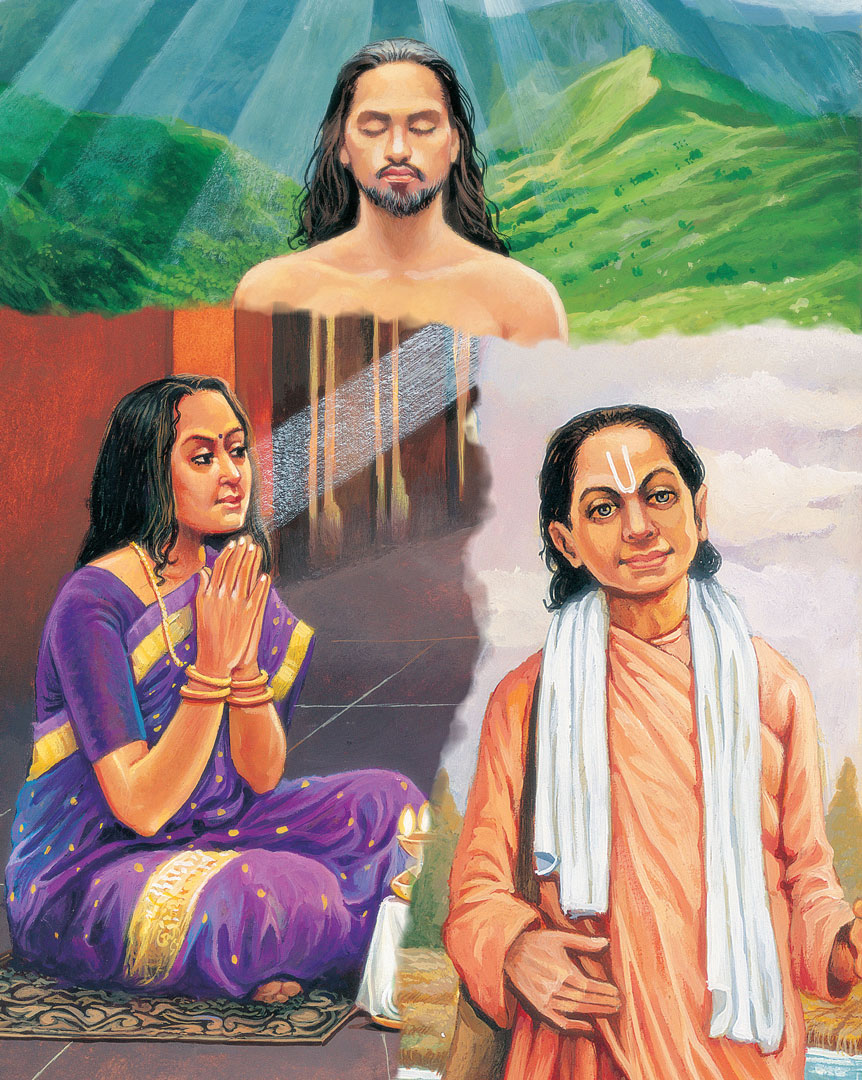

ॐ तत्सदिति निर्देशो ब्रह्मणस्त्रिविध: स्मृत: |
ब्राह्मणास्तेन वेदाश्च यज्ञाश्च विहिता: पुरा || 23||
oṁ tat sad iti nirdeśho brahmaṇas tri-vidhaḥ smṛitaḥ
brāhmaṇās tena vedāśh cha yajñāśh cha vihitāḥ purā
om tat sad iti nirdesho brahmanas tri-vidhah smritah
brahmanas tena vedash cha yajnash cha vihitah pura
BG 17.23: The words “Om Tat Sat” have been declared as symbolic representations of the Supreme Absolute Truth, from the beginning of creation. From them came the priests, scriptures, and sacrifice.

Start your day with a nugget of timeless inspiring wisdom from the Holy Bhagavad Gita delivered straight to your email!
In this chapter, Shree Krishna explained the categories of yajña (sacrifice), tapaḥ (austerity), and dān (charity), according to the three modes of material nature. Amongst these three modes, the mode of ignorance degrades the soul into nescience, languor, and sloth. The mode of passion excites the living being and binds it in innumerable desires. The mode of goodness is serene and illuminating, and engenders the development of virtues. Yet, the mode of goodness is also within the realm of Maya. We must not get attached to it; instead, we must use the mode of goodness as a stepping-stone to reach the transcendental platform. In this verse, Shree Krishna goes beyond the three guṇas, and discusses the words Om Tat Sat, which symbolize different aspects of the Absolute Truth. In the following verses, he explains the significance of these three words.